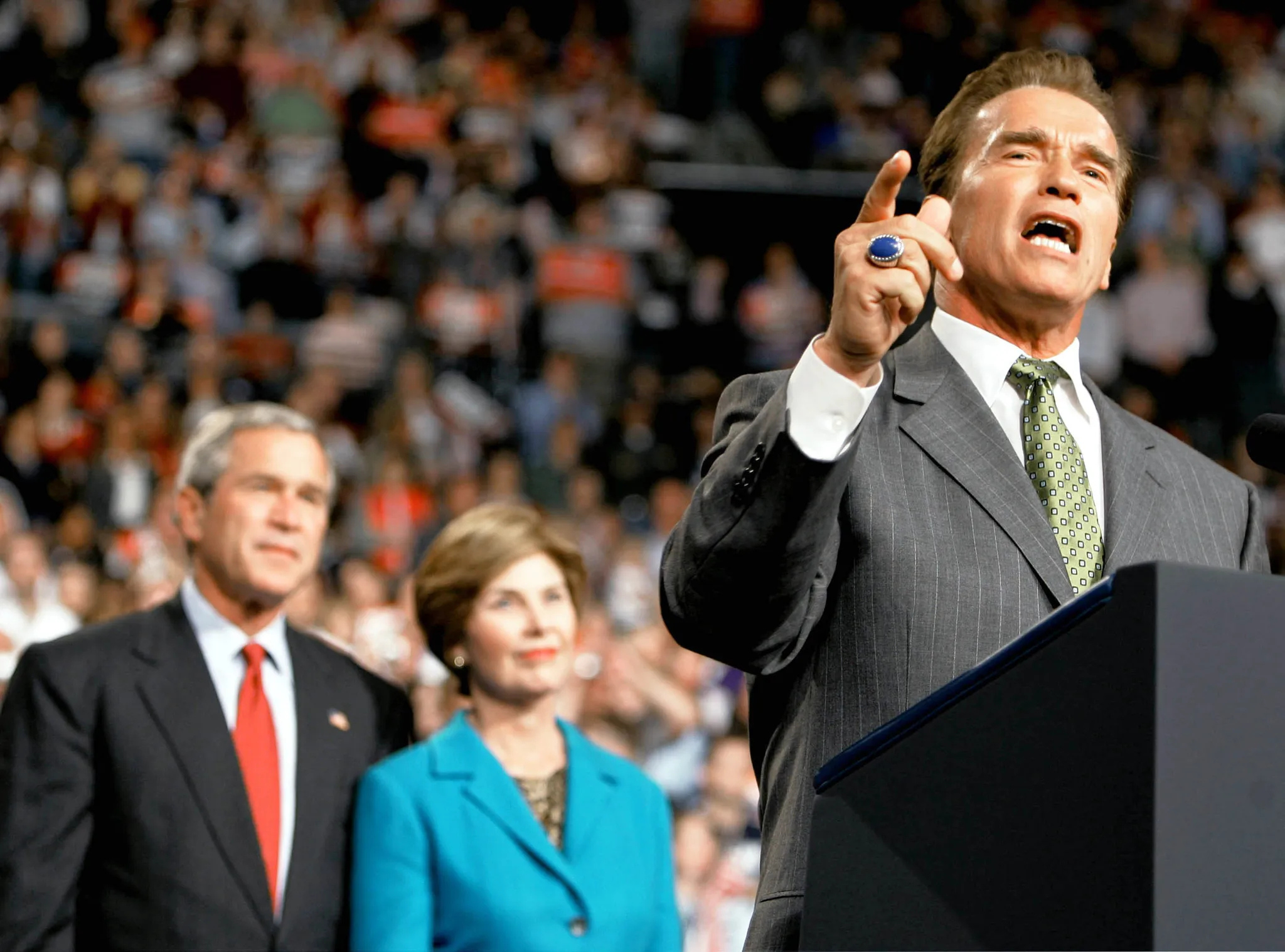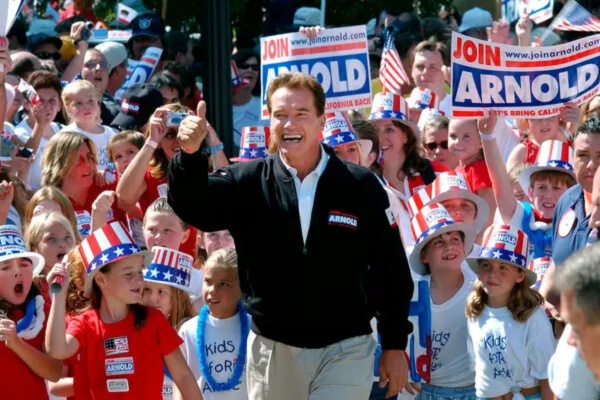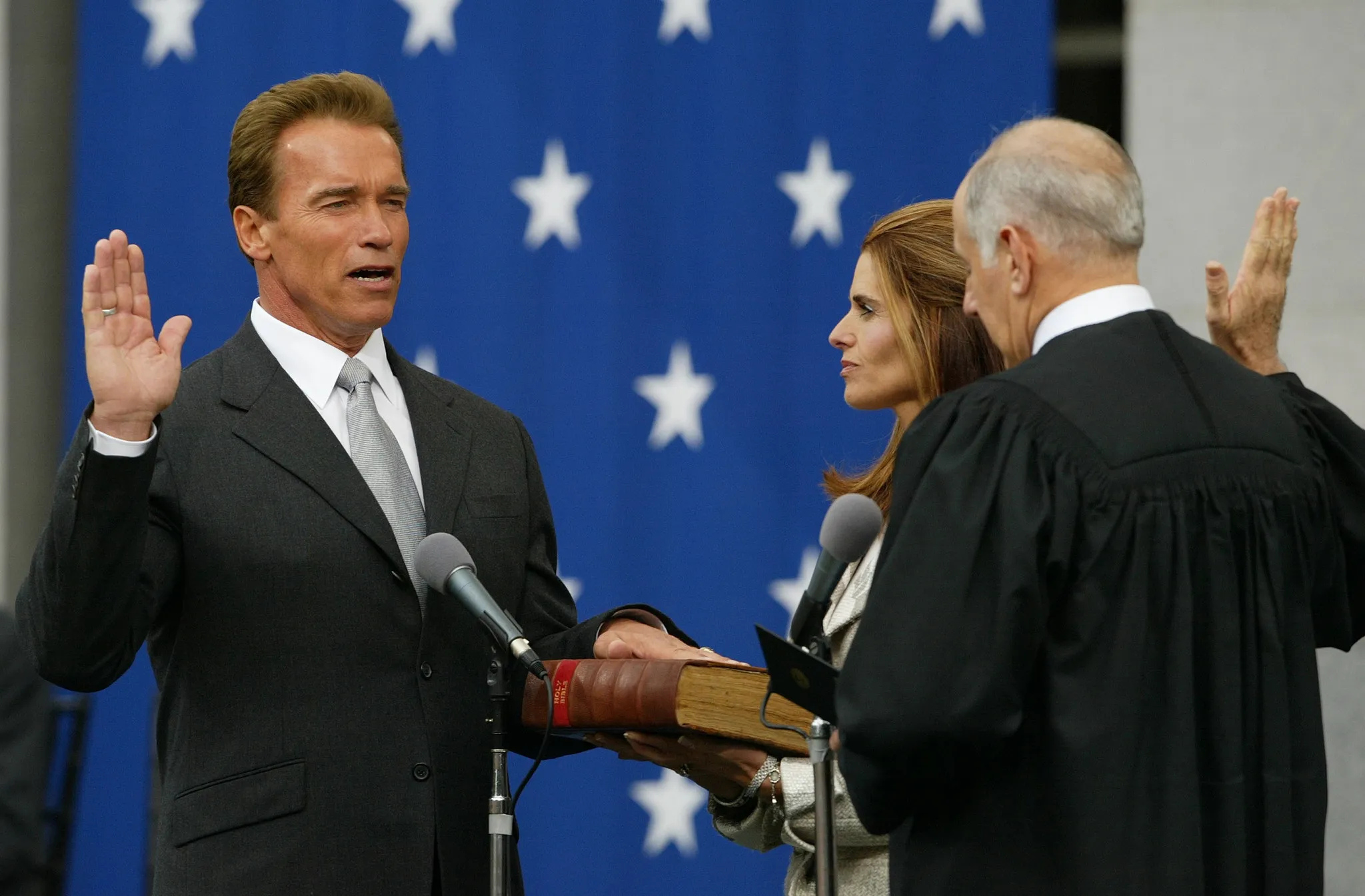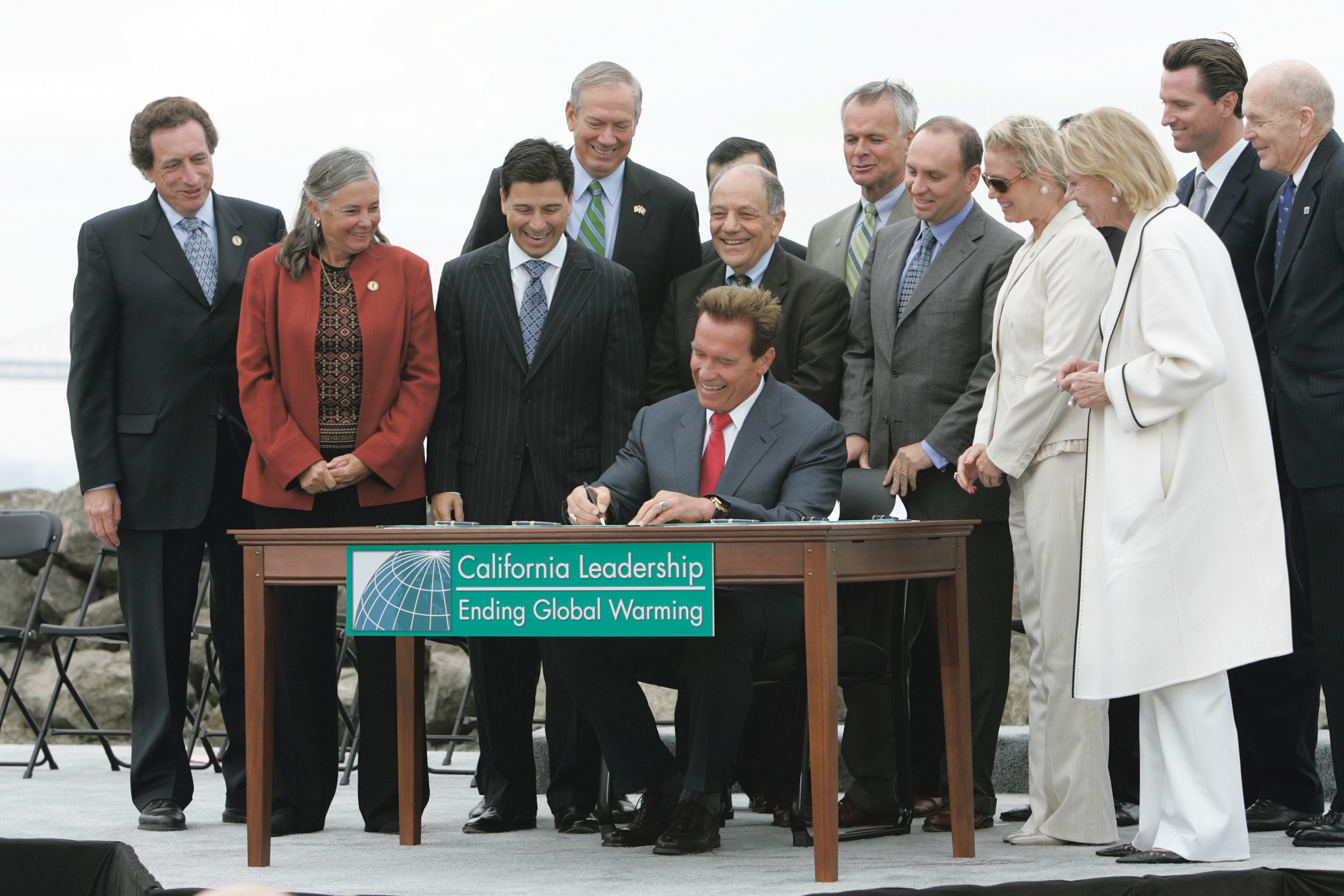Political career
Schwarzenegger announced his candidacy in the 2003 California recall election for Governor of California on the August 6, 2003, episode of The Tonight Show with Jay Leno. Schwarzenegger had the most name recognition in a crowded field of candidates, but he had never held public office, and his political views were unknown to most Californians. On October 7, 2003, the recall election resulted in Governor Gray Davis being removed from office with 55.4% of the Yes vote in favor of a recall. Schwarzenegger was elected Governor of California under the second question on the ballot with 48.6% of the vote to choose a successor to Davis.



